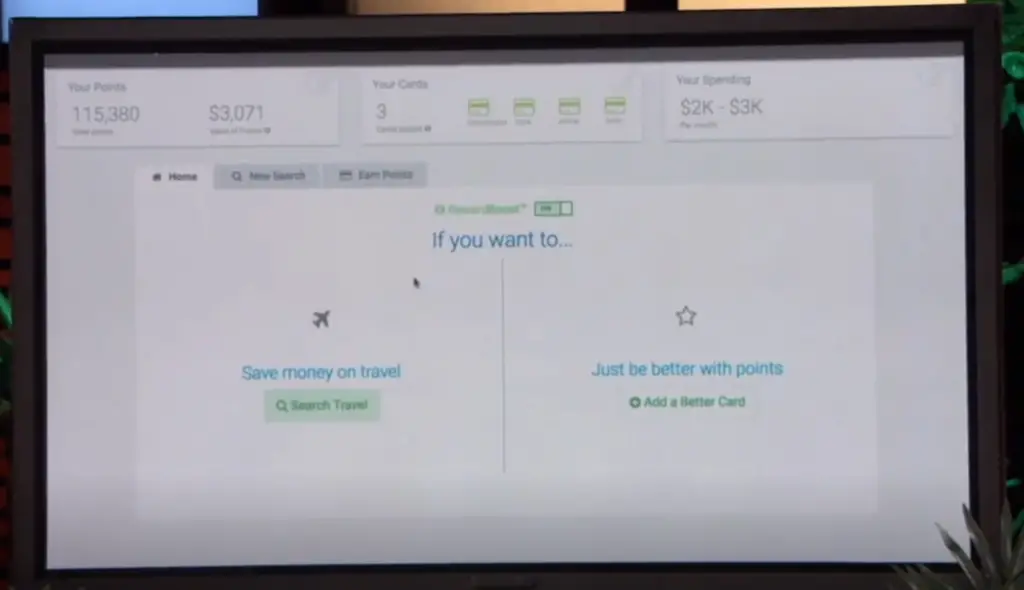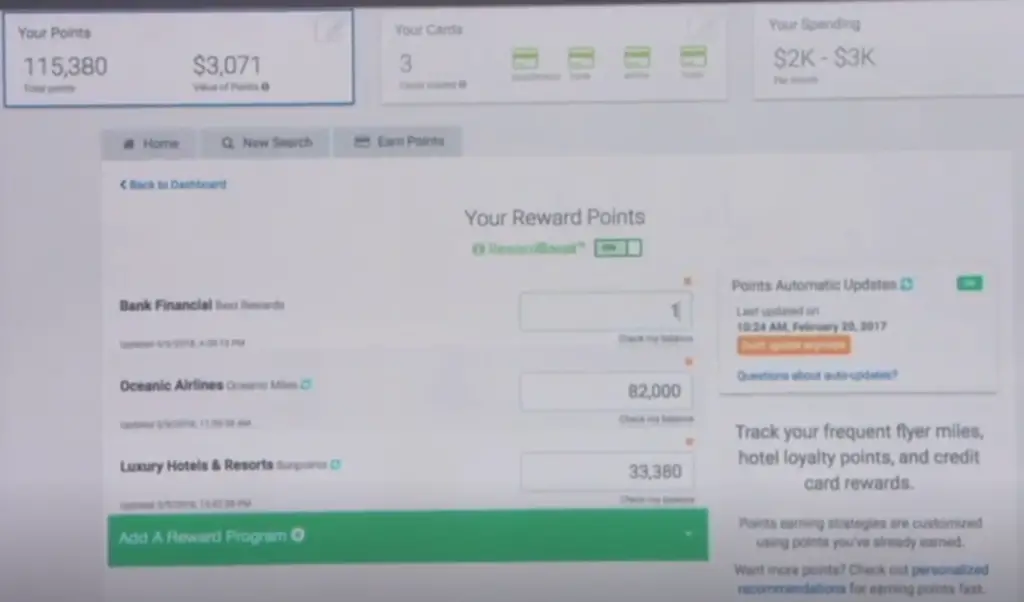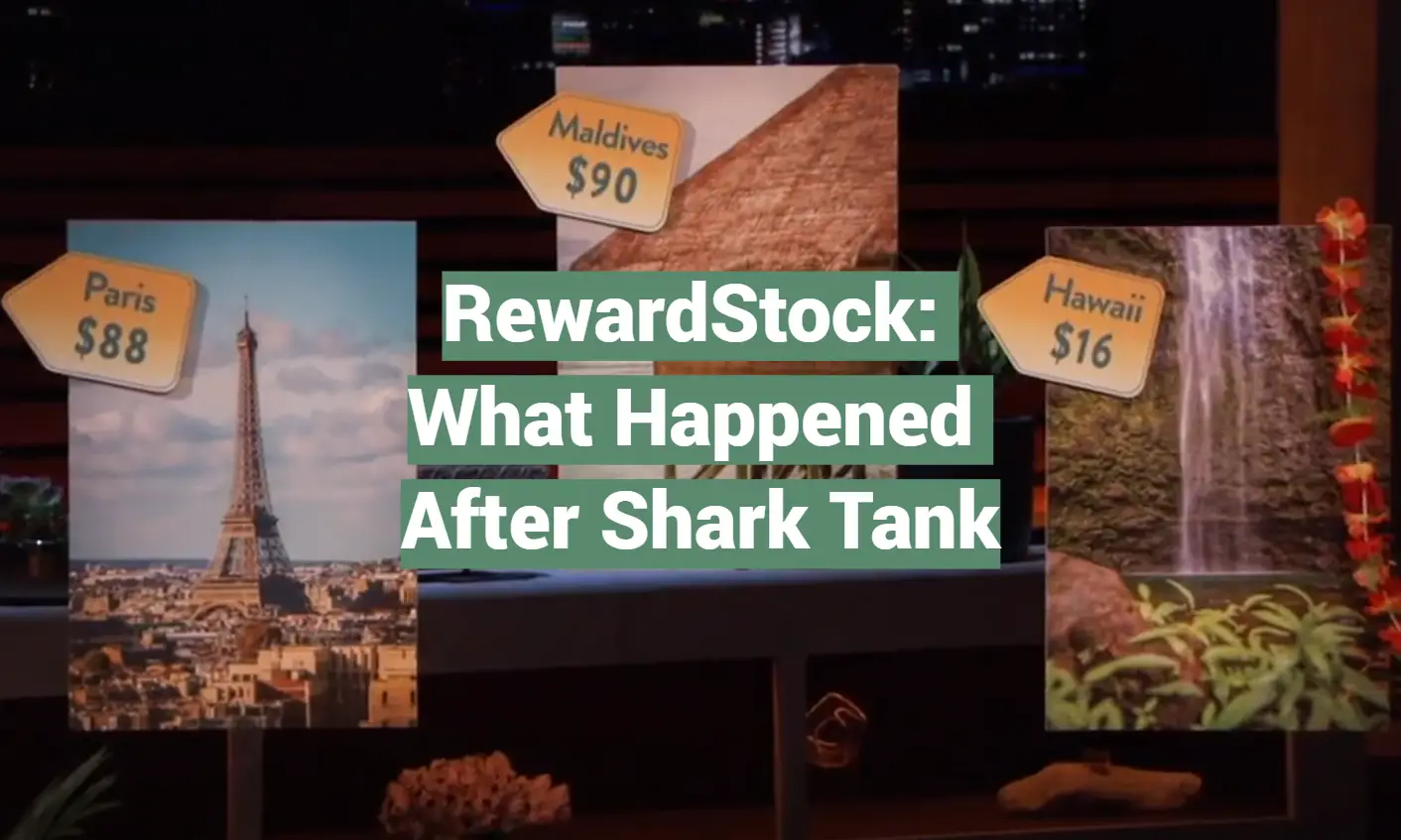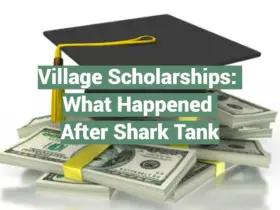This article unveils the post-Shark Tank narrative of RewardStock, offering an in-depth exploration of its subsequent developments, successes, and the impact of securing a deal with a prominent Shark.
Rewind to the moment when RewardStock’s founder, Jon Hayes, stepped onto the Shark Tank stage to pitch his vision of revolutionizing travel rewards. With an enticing offer of 5% equity for $ 200,000, Jon successfully piqued the interest of the Sharks, leading to a riveting negotiation. The outcome of that deal set the stage for RewardStock’s trajectory in the world of travel and rewards.
As we delve deeper, we’ll uncover the pivotal moments and strategic decisions that propelled RewardStock to new heights. From its acquisition by industry giants to its expansion into uncharted territories, this article provides a comprehensive look at how RewardStock transformed from a promising startup to a prominent player in the travel rewards industry.
Join us on this captivating journey as we navigate through RewardStock’s post-Shark Tank evolution, shedding light on its successes, challenges, and the enduring impact of a televised deal that changed the course of its destiny.
What Is RewardStock?
However, it also extends a membership option at an annual fee of $ 29, boasting the following attributes:
- Algorithm-driven outcomes for award flight searches;
- Skilled-assisted support for redeeming rewards (available for a $ 10 charge);
- Strategic guidance for maximizing rewards accumulation;
- Adjustable parameters tailored to your specific circumstances;
Using the App
Upon setting up an account, you are tasked with several essential actions to access personalized outcomes.
Firstly, you can complete your account preferences, which are relatively basic. You are inquired about your primary airport, your monthly expenditure, and your eligibility for business credit cards. Additionally, you are prompted to indicate your comfort level regarding the number of credit cards you intend to open within the next year.

Subsequently, you can formulate travel plans by designating your home airport and your preferred destination. The system will endeavor to propose some options for award travel, although you will also need to manually input your balances across various reward programs. Unfortunately, this must be done individually, and there is no provision for linking your login credentials [2].
Lastly, you have the option to input the credit cards currently in your possession. Similar to your loyalty programs, there is no mechanism for connecting your card accounts with RewardStock. The platform will then propose the recommended expenditure for each card, expressed as a percentage of your total monthly spending. Additionally, it will offer suggestions for new card acquisitions.
Pros of RewardStock:
- Ease of Use: The user interface is intuitive and easy to navigate. Even if you are not tech-savvy, you should be able to easily input your information and understand the recommendations;
- Comprehensive Recommendations: RewardStock doesn’t just tell you where you can use your points. It provides detailed strategies on how to maximize their value. This includes recommending specific flights, and hotels, and even suggesting when to transfer points between programs;
- Time-Saving: Searching for reward travel can be a time-consuming process. RewardStock simplifies this by doing the legwork for you, saving you valuable time;
- Regular Updates: The platform consistently updates reward program information, ensuring you have the most current data to make decisions;
- Customer Support: Users have praised the platform’s customer support, citing prompt responses and helpful advice;
Cons of RewardStock:
- Limited Partnerships: While RewardStock supports a wide range of reward programs, there are some notable absences. If your primary rewards come from a program not supported, you may not find the platform as useful;
- No Mobile Application: Currently, RewardStock does not have a mobile app. This means you must access it through a web browser, which might not be as convenient for some users;
- Subscription Fee: RewardStock charges a yearly subscription fee. While the cost is relatively low, it may not be worth it for individuals who don’t travel frequently or have a small number of reward points;
- Lack of Real-Time Updates: Although RewardStock regularly updates its data, it doesn’t provide real-time availability of rewards flights or hotel rooms. This means you might find a recommended option is no longer available when you go to book;
- No Direct Booking: Lastly, RewardStock does not offer the ability to book directly through their platform. Once you decide on a strategy, you must go to the relevant reward program’s website to make the booking [3];
Who Should Use RewardStock?
RewardStock was founded with the aim of helping individuals optimize their use of reward points from credit cards, hotels, airlines, and other loyalty programs. The idea is simple: You input your reward information, and RewardStock provides recommendations on how to best utilize your points.
About Founders Of RewardStock
During his tenure as an investment banker, Jon Hayes frequently embarked on business trips, yet he remained oblivious to the advantages afforded to users of flight reward points. It was not until he ventured to South Africa alongside his sibling that he truly grasped the significance of these rewards. This journey opened his eyes to the potential savings and rewards that could be gleaned from diligently accumulating and utilizing travel points and miles.
Jon Hayes departed from his employment shortly after his honeymoon, driven by the ambition to master coding and bring RewardStock into existence. This voyage of self-discovery revealed his potential to transform vacation planning into a profitable venture by optimizing and exchanging individuals’ reward points. Upon enrolling in RewardStock, users input their enrolled programs, and the application consistently monitors their value. This data fuels the app’s transformation into an entirely automated travel advisor, strategically aiding users in the redemption and trading of otherwise idle reward points, promising fantastic travel deals.

The application employs intricate algorithms to ascertain the most advantageous utilization of all accrued miles, considering users’ preferences while presenting travel options.
For instance, if one has amassed miles from Southwest Airlines, RewardStock might suggest a cost-free trip instead of the equivalent Delta Airlines miles. By staying attuned to the ever-changing landscape, RewardStock continuously identifies the optimal deals by adhering to the best timing.
Credit card companies also procure substantial quantities of miles from airlines at discounted rates to offer cardholders enticing deals. Similar to airline miles, the value of these miles fluctuates daily. What might enable you to book a luxurious European first-class flight with Delta Airlines miles on a Monday may only secure a subpar domestic flight two days later. RewardStock relieves users of the hassle by providing real-time tracking of this dynamic information, ensuring they effortlessly extract the maximum value from their accrued miles.
RewardStock sustains its operation by charging a nominal fee. Users receive invaluable information for virtually cost-free travel planning, eliminating the need for laborious offer tracking and enabling them to optimize their miles effortlessly. It’s no wonder that Mark Cuban made such a compelling proposition for the company, considering the significant benefits it offers.
The Pitch Of RewardStock At Shark Tank
Stepping onto the Shark Tank stage, Jon Hayes, hailing from North Carolina, introduced himself and unveiled his business, seeking a 5% equity stake in exchange for $ 200,000 [5].
Jon’s pitch commenced by highlighting the complexity of optimizing reward points and airline miles for the average person. He emphasized the ease with which individuals could make mistakes or fail to redeem their rewards due to a lack of understanding. Recounting his own honeymoon experience, where he enjoyed eight luxurious nights in the Maldives with his wife for a mere $ 200 thanks to reward points, Jon explained how this eye-opening journey led to the inception of RewardStock.
He described RewardStock as a travel advisor and booking service. After creating a profile, the platform would analyze the travel points users had accumulated and determine the most efficient way to utilize them, providing users the opportunity to unlock paradise.
To add flair to his presentation, Jon snapped his fingers, setting off tribal music, and brought out a lively performance with Hulu dancers, coconut drinks, and a fire dancer. The Sharks were captivated by the spectacle, with even Kevin attempting some impromptu dancing.
Jon shared his inspiration for the performance, stemming from his own Hawaii experience, where he had enjoyed airfare for just $ 16. He concluded his pitch by asking the Sharks who among them was ready to offer similar experiences to travelers.
Barbara was the first to delve into the financial aspect, seeking clarity on her potential revenue. Jon explained that he would receive kickbacks from various travel sites for referring RewardStock users.
Lori expressed doubts about the average person’s ability to navigate these complexities, to which Jon emphasized the simplicity of RewardStock’s interface, which extracts information from various sources, including credit card rewards and frequent flier miles.

Kevin, drawing on his experience with HoneyFund, saw synergy between the two companies and explored Jon’s revenue strategy, which included a $ 29 annual membership fee and referral kickbacks.
Impressed but skeptical, the Sharks learned that RewardStock had made $ 50,000 in sales from 10,000 users, primarily through referrals. Jon was hesitant about implementing the membership fee.
Jon revealed his background, highlighting his Princeton education and seven-year career in mergers and acquisitions in Manhattan. He emphasized his top-ranking status as an investment banker before embarking on his entrepreneurial journey.
Sarah and Lori opted out, citing a lack of passion and discomfort with the investment amount. Barbara shared similar concerns and decided to pass as well.
Kevin expressed interest but demanded a 10% equity stake for his $ 200,000 investment, asserting that he brought substantial value. Jon hesitated, prompting Kevin to highlight that none of Jon’s existing investors could match his offer.
Seeking Mark’s input, Jon received an offer of 10% equity and a 1% advisory share from Mark in exchange for $ 320,000 [6]. Jon accepted the deal, sealing it with a handshake, while Kevin swore off any future calls from the company.
RewardStock After The Shark Tank
The successful acquisition of RewardStock by Experian is indeed a positive development for its investors and employees. Co-Founders Capital’s initial investment of $ 350,000 in 2015, totaling $ 590,000, has yielded a solid return [7]. While the exact financial details of the acquisition remain undisclosed, the fact that it was an all-cash deal reflects positively on the outcome.
Founder Jason Gardner’s confirmation that the sale provided a solid return, even if it wasn’t a massive one, underscores the success of RewardStock and the value it brought to its stakeholders. Such exits are a testament to the company’s accomplishments and the potential benefits reaped by its investors and team members.
The Net Worth Of RewardStock
The app takes care of all the behind-the-scenes tasks, such as point calculation and money handling, so the user doesn’t have to worry about how it works:
- There is a membership fee of $ 29;
- In the first two years of the app’s development, it generated a revenue of $ 50,000;
- For each customer referred, there is a referral fee of $ 5;

Alternatives To RewardStock:
- The Points Guy (TPG): TPG is a well-known website and app that provides comprehensive information and tips on travel rewards, credit card offers, and loyalty programs. They offer valuable insights and reviews on how to optimize your travel experiences using points and miles;
- AwardWallet: AwardWallet is a loyalty program and miles-tracking service that helps you keep track of your various reward programs, including airlines, hotels, and credit cards. It provides real-time updates on your balances and expiration dates;
- Travel Freely: Travel Freely is a free online tool that helps you manage your credit card rewards. It tracks your credit card sign-up bonuses, and annual fees, and provides recommendations on which cards to apply for based on your travel goals;
- ExpertFlyer: ExpertFlyer is a tool for frequent flyers that offers real-time information on flight availability, award seat alerts, and fare analysis. It’s particularly useful for those looking to book flights using miles;
- AwardMapper: AwardMapper is a website that allows you to search for hotels within a specific loyalty program to see where you can redeem your points. It’s handy for planning hotel stays using rewards;
- WalletFlo: WalletFlo is a mobile app designed to help users maximize their credit card rewards. It provides recommendations on which cards to use for specific purchases to maximize cashback or points;
- Travel Hacking Cartel: Run by Chris Guillebeau, this membership-based service provides travel hacking tips, alerts on credit card offers, and other resources for those looking to optimize their travel rewards;
- Google Flights and Google Hotel Search: These are powerful tools for finding and comparing flights and accommodations. While not specifically for rewards, they can help you find the best options for your travel plans;
- Points.com: Points.com allows you to exchange, trade, and manage your loyalty points and miles across various programs;
- Credit Card Issuers’ Apps: Many credit card issuers offer their own apps and websites that provide information on rewards, points redemption, and special offers [9];
FAQ:
- What happens to businesses after Shark Tank?
After appearing on Shark Tank, businesses often see a significant boost in exposure and sales, known as the “Shark Tank Effect”. However, the journey doesn’t end with a handshake deal on the show. The Sharks and entrepreneurs enter a due diligence process where the company’s financials and claims are verified. If everything checks out, the deal proceeds. But not all deals make it through this stage. According to Daymond John, about 80% of season seven’s deals made on camera closed [10].
The Sharks tend to manage their new investments aggressively. They may introduce changes to the company to ensure its growth and profitability. However, some businesses fail due to various reasons, including bankruptcy or financial mismanagement.
- Does Shark Tank really pay for successful businesses?
The Sharks on Shark Tank invest their own money into the businesses they choose to back. The funding they provide is real, and entrepreneurs give up equity in their company in return. The show itself does not pay for the businesses.
- Is Shark Tank real or scripted?
While the pitches on Shark Tank are edited for television, the interactions and negotiations are real. Entrepreneurs present their businesses to the Sharks who then decide whether or not to invest based on the pitch and ensuing discussion.
- Why is Shark Tank called so?
The term “shark” is often used to refer to a savvy or aggressive investor or business person. The “tank” refers to the high-pressure environment in which entrepreneurs must pitch their business ideas to these tough, experienced investors.

- Are Shark Tank millionaires?
Yes, all of the Sharks on Shark Tank are millionaires or billionaires, having amassed their wealth through entrepreneurship, investments, and other business ventures.
- How much is Lori Shark Tank worth?
As of 2023, Lori Greiner, one of the Sharks on Shark Tank, has an estimated net worth of over $ 100 million.
- Who is the nicest shark on Shark Tank?
This is subjective and can depend on personal opinion. However, Robert Herjavec is often perceived as one of the nicest Sharks due to his empathetic approach towards entrepreneurs.
- Why did Robert leave Shark Tank?
Robert Herjavec has not officially left Shark Tank. As of season 14, he continues to appear as a regular Shark on the show.
- Who is the poorest “shark” from Shark Tank?
Compared to the other Sharks, Daymond John reportedly has the lowest net worth, which is estimated to be over $ 300 million. However, it’s important to note that this still makes him incredibly successful and wealthy by normal standards.
- How does RewardStock work?
RewardStock works by helping users maximize their points and miles from various reward programs. Users input their reward information, and RewardStock provides recommendations on how to best utilize those points, including suggesting when to transfer points between programs.
- Who was removed from Shark Tank?
To the best of my knowledge, no Shark has been officially removed from Shark Tank. However, some Sharks have left the show or made guest appearances rather than being regular cast members.
- Are rewards cash-free money?
Rewards cash isn’t exactly “free money”. It’s a perk offered by credit card companies, loyalty programs, and other businesses to incentivize certain behaviors, like spending on a specific credit card or shopping at a particular store. These rewards can often be redeemed for cash back, travel, gift cards, or other goods and services.
- Do rewards cash expire?
The expiration of rewards cash depends on the specific terms and conditions of the program offering them. Some rewards may expire if they’re not used within a certain timeframe, while others may not expire at all. It’s important to read the fine print of any rewards program to understand its specific rules.
- Who eventually bought RewardStock?
It appears that RewardStock was indeed acquired by Experian on November 12, 2020. Acquisitions like this can impact the future direction and offerings of a company.

- How much funding has RewardStock raised to date?
RewardStock has raised a total of $ 970,000 over three funding rounds. Here’s a summary of the funding rounds:
First Funding Round:
- Date: October 18, 2015
- Amount: Not specified
Second Funding Round:
- Date: Not specified
- Amount: Not specified
Latest Funding Round (Seed Round):
- Date: November 21, 2018
- Amount: $ 320,000
- Which is the biggest company in Shark Tank India?
It’s indeed remarkable that CarDekho achieved unicorn status, becoming Rajasthan’s first unicorn and one of India’s leading auto tech companies. Being valued at $ 1.2 billion is a significant milestone for the company, and it reflects the success of its business model in the automotive sector.
Amit Jain’s estimated net worth of around ₹ 2,900 crore in rupees underscores his substantial success and the impact of CarDekho in the Indian market. His entrepreneurial journey and the growth of CarDekho highlight the potential for innovation and disruption in the automotive industry.
Useful Video: Jon Hayes, CEO, RewardStock, Shark Tank Party Interview
References:
- https://sharktanktales.com/rewardstock-shark-tank-update/
- https://gazettereview.com/rewardstock-after-shark-tank-update/
- https://bizzbucket.co/rewardstock-after-shark-tank-update/?expand_article=1
- https://sharktankrecap.com/rewardstock-app-update-shark-tank-season-10/
- https://insidergrowth.com/rewardstock-net-worth/
- https://www.sharktanksuccess.com/rewardstock-review/
- https://www.sharktankblog.com/business/rewardstock/
- https://wraltechwire.com/2020/11/23/startup-spotlight-how-reward-stocks-sale-to-experian-happened-at-just-the-right-time/
- https://2paragraphs.com/2020/11/rewardstock-what-happened-to-travel-airmiles-app-after-320k-mark-cuban-shark-tank-deal/
- https://thepointsguy.com/guide/rewardstock-review/














Leave a Reply